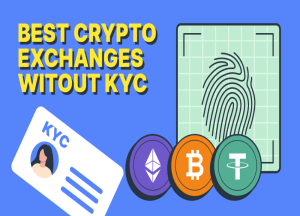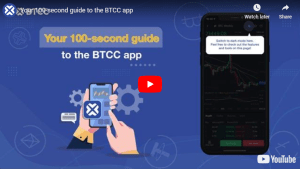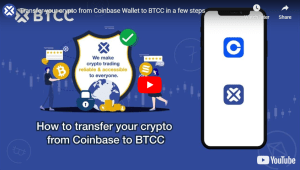The reason why bandwidth needs the layer-1 blockchain
What exactly is bandwidth, and how could it be lost?
Bandwidth is the measure of data that can be transferred between two or more devices.
Users who don’t maximize their bandwidth usage are considered ‘wasteful.’ Especially since bandwidth is valuable, and when you don’t use it, you lose it. For example, when paying for a monthly internet plan, a person might pay for speeds of just one gigabyte per second or more.
However, it is implausible that the typical user will fully utilize that one gigabyte per second, as most use cases don’t require such rates of speeds, and most people don’t use all of their bandwidth 24/7. They may only browse the web and stream music, which can be done with much less bandwidth. They might occasionally have numerous people on their connection or maximize that usage by streaming 4k video or transferring large files, justifying the need for such a plan, but utilizing a gigabyte per second at all times is rarely the case.
So even if the user is paying for a certain amount of bandwidth, much of it will go to ‘waste’ if they’re not maximizing utilization at all times.
Therefore, does that mean bandwidth accessibility is a problem?
Some people find it difficult to get access to bandwidth in the first place.
While higher bandwidth speeds are available in most first-world countries, bandwidth accessibility is certainly not available globally.
Bandwidth is typically distributed through an Internet Service Provider (ISP) that manages the speeds provided to each customer. The ISP has complete control over how much bandwidth it chooses to distribute and at what price, often imposing artificial limits on what users can do with that bandwidth and even censoring access or throttling speeds. This problem varies in severity based on the country and local region.
Take China, for instance. The Chinese government is very strict regarding bandwidth usage, limiting and monitoring citizens’ usage. However, government-provided access might be the only way citizens can access the internet at a reasonable speed.
Even in the united states, ISPs throttle bandwidth speeds on their “unlimited” broadband programs. With the world becoming ever-more connected with innovations such as high-resolution streaming and the metaverse, these limitations will only hinder such improvement.
Sure, users can connect to a virtual private network (VPN), which masks their IP address and allows them to access the internet from any supported location. VPNs typically aren’t as fast as a traditional connection, and their usage might be illegal or blocked in some regions. Plus, it is questionable as to what a VPN provider is doing with user information. They may be selling it to advertisers, government authorities or exposing it to vulnerabilities.
Can there be a solution?
A decentralized version of the ISP presents a compelling future. One where users can break free of current web limitations while continuing using their unused bandwidth.
One solution to the bandwidth problem is decentralized use cases via blockchain technology. With users worldwide ‘wasting’ their bandwidth, why not have them repurpose that unused bandwidth for profit?
Think about a world where users can become the ISPs, and those who need bandwidth can pay to access the ‘wasted’ bandwidth without having to be monitored or restricted. Those with access to higher speeds can sell portions of it in a decentralized marketplace for others to buy, with the winning bid acquiring all the bandwidth they’d need.
Not only can this solution help increase internet access, but it can also offer one where users enjoy high speed, low-cost access with end-to-end encryption for privacy and security. While the seller’s connection might still be a gateway from a centralized ISP, the customer’s data is given through a VPN optimized for broadband via blockchain, based on the customer’s location.
How is the decentralized bandwidth vision becoming a reality?
Users can tokenize their bandwidth and sell it in a decentralized trading marketplace to help provide low-cost access to the internet.
PKT is the only layer-1 blockchain designed to support bandwidth trading marketplaces and high-speed internet service. PKT uses the world’s first bandwidth-hard proof-of-work (PoW) mining solution to create an financial incentive while building a high-speed data network system. Forked from Bitcoin, PKT replaces the SHA-256 PoW standard with the collaborative PacketCrypt mining protocol.
Within the PKT Network, users with unused bandwidth earn PKT Cash coins by directing their extra bandwidth and compute resources to mining. The act of connecting bandwidth to the PKT Network is called announcement mining. Announcement mining uses the miner’s CPU to produce small packets of data and utilizes upload bandwidth to move this data to different PKT mining pools all over the world.
PKT mining pools pay announcement miners because having more announcements allows the pools to mine blocks more efficiently. Initially, miners are just proving they have the bandwidth, but furthermore use cases, such as bandwidth trading marketplaces and bandwidth sharing, are being developed.
Because pools ingest so many announcements from around the world, they require a very high network capacity of at least 40Gb/s internal connections. These infrastructure requirements build and scale the high-speed, high-throughput PKT Network as more people connect their unused bandwidth.
PKT is a completely decentralized blockchain project that follows in the path of Bitcoin, with no company, no investors and no pre-mine. The PKT Network is entirely built by the people who connect to it, with the focus on making use of excess bandwidth that would otherwise go to waste and to help get people access to low-cost, high-speed internet connections worldwide.










